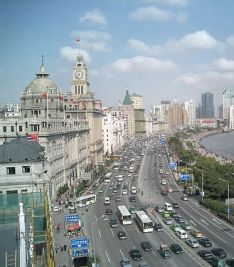 |
|
The introduction of China's pilot value added tax (VAT) reform programme in Shanghai, China’s leading services centre, appears to be effective thus far although technical challenges remain.
“We think that so far the implementation has been successful. It has been noted that some service recipients are inclined to choose providers in Shanghai as the latter can extend VAT special invoices to the former to set off their output VAT,” says Peter Law, senior manager in tax advisory services of Mazars China.
Law indicates a particular technical challenge for tax officers: “The continued challenge so far may be the treatment of export of services. Although the State Administration of Taxation has issued a circular which says that no output VAT should in general be charged on export of services … some tax bureaus are still requiring taxpayers to charge output VAT for export of services, so some fine tuning of the details still remains.”
China initially implemented the VAT system in 1984 on 24 specified items. The VAT code was modified in 1993 and the revised version still remains in force. At the start of this year, China officially introduced the long-awaited pilot programme on VAT reform in a bid to change its obsolete taxation system, lessen the burden of credit-strapped small- and micro-sized corporate taxpayers, push the domestic production upstream and transform the GDP growth composition.
The current VAT imposition covers six modern service and the transportation sectors in Shanghai. According to China’s Ministry of Finance, the six percent VAT rate will apply to research and development, technological service, culture, logistics and consultation sectors while an 11 percent VAT rate will be applicable to the transportation sector. The new VAT rates are additions to the original VAT rates (at 17 percent and 13 percent) and a tax exemption privilege for service exporters. An official statement further clarified that the pilot programme will help the regulators prepare before the tax replacement scheme is rolled out nationwide.
Replacing business turnover tax (tax on the gross revenue of a business) with a VAT -- which taxes the added value throughout the supply chain -- is deemed a significant move to eliminate double taxation. The change is expected to fulfill the commitment of the State Council in helping the small- and micro-sized businesses amid a tough business climate. From a macroeconomic perspective, the VAT reform will help China’s transition from a downstream manufacturer to a comparatively upstream services provider, and transform China’s GDP growth composition from an export- and investment-driven base to a more services- and consumption-oriented foundation.
"The (VAT) reform was a big step in China's economic transition and structural adjustment, as well as a major part of the structural tax reduction. It could help to eliminate duplicate taxation, to enhance competitiveness of the service sectors, to support the development of smaller businesses and to drive the expansion of employment," vice-premier Li Keqiang earlier affirmed the effectiveness of the programme in a visit to Shanghai to evaluate the progress of the VAT pilot programme. He later added that the reform in pilot sectors and regions will be gradually expanded across the country within the 12th Five-Year Plan from 2011 to 2015. The statement sets the tone for further expansion of the programme.
Just two months after the implementation in Shanghai, reports noted that Beijing was poised to join Shanghai as the next trial spot of the VAT scheme starting July 2 2012. The details of the Beijing version remain unannounced, but the objectives of the pilot programme should be consistent with that in Shanghai. It is expected that Shenzhen and the entire province of Guangdong will soon be part of the scheme contingent upon further assessment on results in Shanghai and Beijing. An eventual implementation of the pilot programme to the rest of China is now firmly anticipated as Zheng Jianxin, deputy director at the Chinese Ministry of Finance’s taxation department, reiterated that China aims to implement such reforms nationwide by 2015. The Chongqing, Tianjin, Jiangsu provinces are all said to be in the application process for similar scheme.
To quantify the benefits of the VAT pilot programme in the GDP based on the calculation of the State Administration of Tax (SAT), the replacement of the turnover tax could lift domestic growth by 0.5 percentage points and export growth by 0.7 percentage points, while assisting to create some 700,000 jobs, according to Xiao Jie, a director at SAT, adding that if the reform unfolds in full-swing, it would result in total tax reductions of over 100 billion renminbi (USD15.9 billion).









